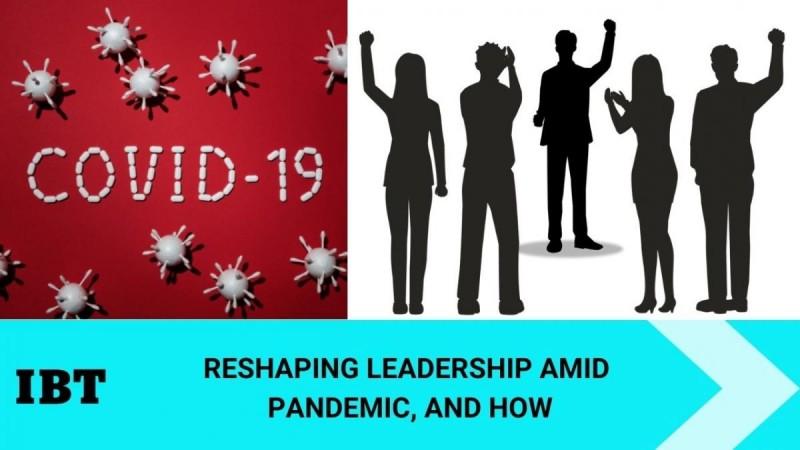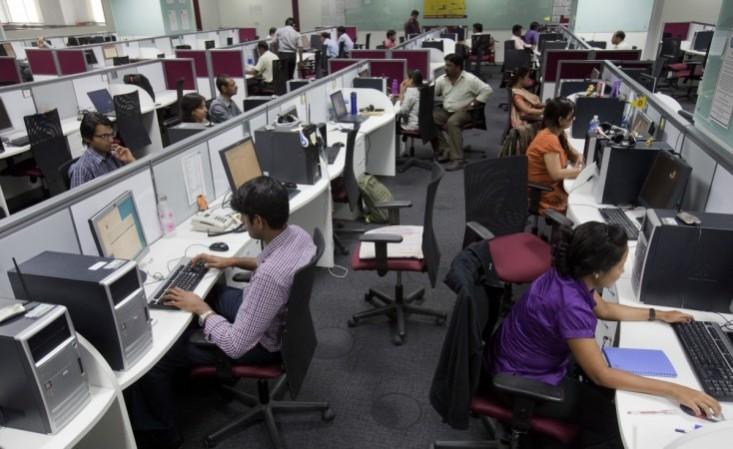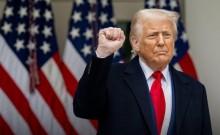In the current scenario, it is crucial to navigate one's leadership skills, values, and knowledge in the right direction - to be able to sustain a healthy relationship between the organization and their team. While it would be safe to say that all of us have experienced a crisis of our own in our lives, it would not be an exaggeration to state that none of us has experienced a crisis of such magnitude as the one COVID-19 has presented.
On 24 March 2020, Prime Minister Narendra Modi announced one of the longest – at the time – lockdowns, asking 1.3 billion Indians to stay at home resulting in a paradigm shift - a perfect storm by all means. For corporations as well, it was a perfect storm, one that impacted every aspect of their business – change in consumer behaviour, disrupted supply chains due to shutdowns, labour shortages and economic strains, job insecurity and business models, which were being put to test.

As we adjust to a 'new normal', a new wave of the Omicron variant brings us back to where we started. With this recurring trend, leadership is put to test again - how to plan the way forward in a manner that prepares our business models for a new challenge well in advance. This involves an eye for detail to changing consumer behaviour with each development in the pandemic and how well leaders can anticipate and navigate through this ambiguity.
A perfect storm is also the time when heroes emerge, as they never waste a crisis. As we moved forward in the pandemic with resuming functions amidst new challenges presented by the virus, the leadership of the captains of the ships weathering this storm have been severely tested as they aimed to survive, navigate, and emerge stronger on the other side of it. All this while facing a new challenge every hour, with no time to pause and reflect, and constantly trying to balance multiple considerations that were put forward.
Survival of the most adaptable is the key overarching leadership lesson to take away from this environment.
The requirements and traits of executives have changed forever and will continue to do so. The traits which will now find prominence will be distilled from the learnings of people who fared well in this crisis and stood up. Moving forward, industry leaders will require these in their approach- strategical application of knowledge and empathy. The ability to think, analyze a situation, recognize a problem and get out of it successfully, will test one's knowledge and strategy.

We took the opportunity to talk to some leading consumer sector CEOs in India and interposed that with what our global Russell Reynolds Associates colleagues are hearing from consumer sector leaders across the world. As one would expect, survival of the most adaptable is the key overarching leadership lesson to take away from this environment, with a combination of dexterity and agility being the holy grail of navigating it.
- Some people leadership lessons from this episode have been as follows: Purpose-led leadership will continue to be the focal point for every business: In our conversations with Indian leaders, alignment with the organization purpose has never walked the talk as it has in the last few months. What was often mistaken as a leadership fad has found its day under the sun where people are willing to take on risks for what they are believing is serving a higher purpose.
- The Horizontal Organization not only shows empathy but empowers people: A corollary of the purpose-led leadership is that the transition from a traditional vertical organization structure to a more horizontal influence led organization structure has been surprisingly seamless just like the transition from working from offices to homes. A lot of leaders have never seen the type of trust and collaboration between their teams when faced with a common adversary. Siloes and reporting lines have given way to the exchange of ideas and an openness to change. The peek into the homes and personal lives of colleagues have given people an opportunity to see the human being behind their bosses and colleagues and some of the inhibitions around hierarchy and seniority have given way to a true chance of authentic leadership. Delegating, empowering and trusting people has shown better results in this time rather than command and control set-ups.
- Succession Planning: This crisis has hit everyone and has shown that no one is invincible, leading to higher awareness around the need for structured yet dynamic succession planning at all levels in an organization. This episode is likely to add to the depth and breadth of the exercise, as the theoretical possibilities of what can go wrong have been put into play.
- Transparent communication roadmap opens doors for collaboration and newer ideas: Communication has been the balm to soothe anxieties of people and never has this worked so effectively, especially in environments where people are cooped up in their homes. While in times like these it's better to err on the side of overcommunication, it is imperative to align on the messaging to be a combination of realistic/authentic and yet optimistic, often known as the Stockdale Paradox. There is no better way to discredit oneself than by making bold sweeping statements in the temptation to provide inspirational leadership required in a dull and gloomy environment and then having to eat one's words later.
Leaders we spoke to also share how this health pandemic has evolved their own leadership styles. Some key takeaways were as follows:
Inclusive leadership: This environment of being forced to sit at home, and not always be in control, has made leaders let go a lot more than they normally would and depend a lot more on others. This has provided them with an opportunity to practice a much inclusive leadership style, with more democracy and autonomy, decisioning amidst divergent viewpoints, empowerment and trust and rapid unlearning and relearning.
Engagement & communication: The needle moved significantly on the levels and appreciation of the power of engagement and communication, not only with their teams within the organization but the broader stakeholders of the organizations. Staying at homes not only made this desirable but also provided the opportunity to connect at a much more humane level.
While the coronavirus pandemic is far from over, this crisis has also created the perfect opportunity to pause and pivot in a non-linear manner around various aspects of business models and leadership behaviours and styles. To emerge stronger, companies need to adapt faster, act more sensitively and lead more assertively than ever before. Leaders are expected to show more empathy, humility, sustainability, and compassion while juggling commercial leadership, rapid innovation and performance management.
[The author, Pankaj Arora, Managing Director, Russel Reynolds Associates. Views expressed are author's own and do not reflect the opinions and beliefs of the website or its affiliates.]
















